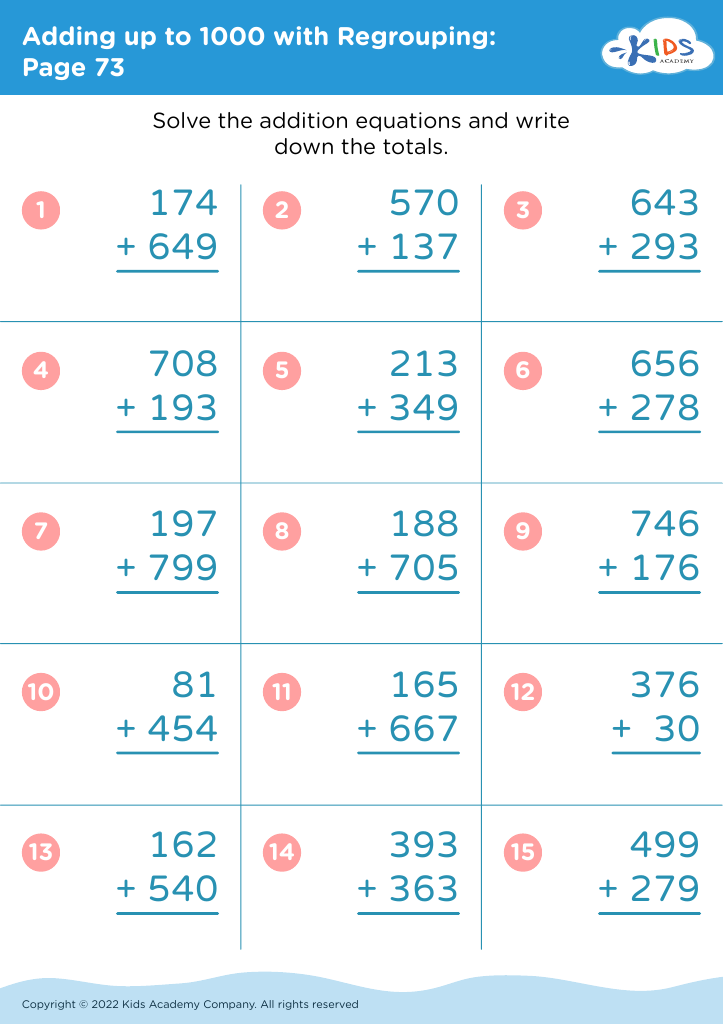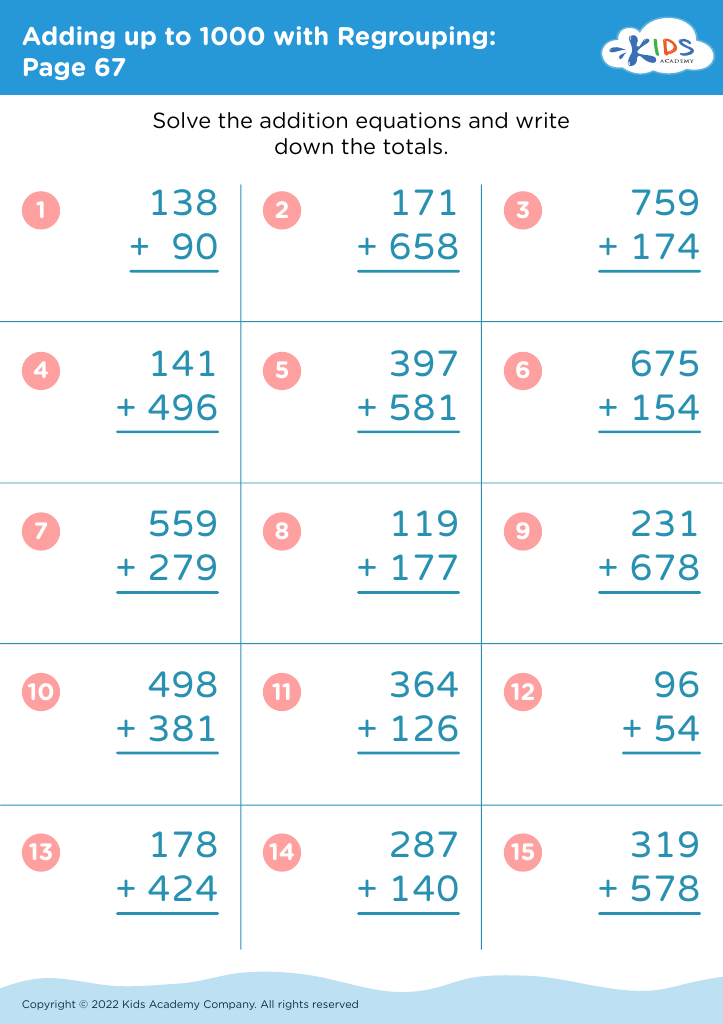Recognizing shapes Adding up to 1000 with Regrouping Worksheets for Ages 8-9
4 filtered results
-
From - To
Help your child master essential math skills with our "Recognizing Shapes Adding up to 1000 with Regrouping Worksheets for Ages 8-9". These engaging and educational worksheets help children recognize geometric shapes while learning to add large numbers by regrouping. Perfect for 2nd and 3rd graders, the activities blend visual learning with practical math skills. Your child will gain confidence as they solve problems, improve their shape recognition, and develop critical thinking abilities. Give your young learner the tools they need for math success with our expertly crafted worksheets designed for fun and effective learning.
Recognizing shapes and performing addition with regrouping up to 1000 are foundational skills critical for children aged 8-9, as they lay the groundwork for higher-level math and everyday life. At this age, kids are developing key cognitive abilities and fostering a deep understanding of these concepts sets a robust basis for future learning. Understanding shapes enhances spatial awareness, fine motor skills, and problem-solving abilities, which are essential for subjects like geometry, art, and even science. Recognizing shapes also supports children in interpreting the world around them more accurately, as patterns and structures can be identified and understood better.
Addition with regrouping up to 1000, on the other hand, strengthens arithmetic skills and numerical fluency. It practices their ability to handle larger numbers and complex calculations smoothly. Proficiency in these areas builds confidence and competence, reducing math anxiety and promoting academic success. Being adept at addition problems also translates into real-world skills, like managing money, time, and resources efficiently.
Parents and teachers play pivotal roles in nurturing these abilities. By investing time and attention, they help children build a solid math foundation, crucial for future educational achievements and everyday problem-solving. Encouraging and supporting learning at this age yields long-term benefits, influencing a child's positive attitude toward math and critical thinking skills.














